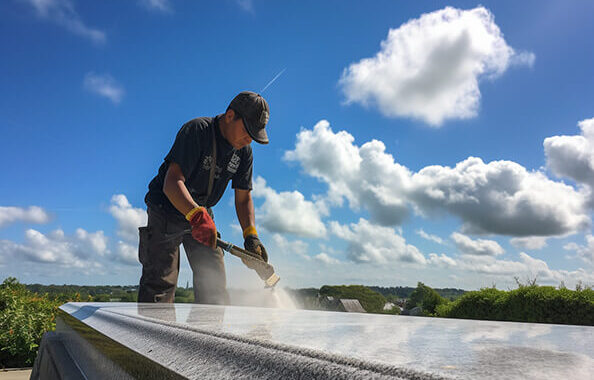Gravestones and memorialsstand as enduring tributes to the lives of those who have passed on. Maintaining the pristine condition of these solemn structures requires careful consideration of the cleaning agents used. One commonly discussed solution for cleaning headstones is vinegar. In this article, we will explore the potential impact of vinegar on headstones, shedding light on whether this household staple is a suitable choice for preserving the sanctity of these memorial structures.
Understanding Headstone Materials:
Before delving into the effects of vinegar on headstones, it’s essential to recognize that these monuments are crafted from various materials, each with distinct properties. Common materials include granite, marble, limestone, and bronze. The choice of material often depends on factors such as aesthetics, durability, and the preferences of memorial manufacturers.
- Granite Headstones: Granite is a popular choice for gravestones due to its durability and resistance to weathering. Memorial manufacturers often recommend gentle cleaning methods to avoid damaging the stone’s surface, and understanding the impact of vinegar on granite is crucial.
- Marble Headstones: Marble, prized for its elegance, is a softer and more porous stone compared to granite. It requires careful maintenance to prevent deterioration over time.
- Limestone Headstones: Limestone, while aesthetically pleasing, is more susceptible to acid damage. It’s crucial to exercise caution when choosing cleaning agents for limestone headstones.

The Impact of Vinegar on Headstones:
While vinegar is a commonly used household cleaner, its acidic nature raises concerns about its suitability for cleaning gravestones.
- Acid Sensitivity: Vinegar is acidic, and prolonged exposure to acid can have detrimental effects on certain types of stone. Granite, being more resistant, may withstand vinegar in moderate concentrations. However, for softer stones like marble or limestone, the acidity in vinegar can lead to erosion and discoloration over time.
- Staining Potential: The organic compounds in vinegar can interact with minerals in the stone, leading to potential staining. This staining can compromise the appearance of the headstone, diminishing the visual tribute it pays to the departed.
Professional Recommendations for Headstone Cleaning:
- pH-Neutral Cleaners: Memorial manufacturers and monument services typically recommend pH-neutral cleaners for routine headstone maintenance. These cleaners are less likely to cause damage to various stone types, ensuring a gentle yet effective cleaning process.
- Avoiding Acidic Solutions: To preserve the integrity of headstones, it is advisable to steer clear of acidic cleaning agents like vinegar, especially for softer stones prone to acid sensitivity.
- Consulting Professionals: In cases where headstones require specialized cleaning, seeking the guidance of monument services or professional stone cleaners is essential. These experts possess the knowledge and tools to safely address specific cleaning needs without compromising the memorial’s longevity.
While vinegar may find a place in many household cleaning routines, its use on headstones requires careful consideration. Different materials react differently to acidic substances, and as such, it’s crucial to adopt a tailored approach based on the type of memorial in question. By adhering to professional recommendations, individuals can ensure that their tributes to loved ones endure the passage of time with dignity and grace.

